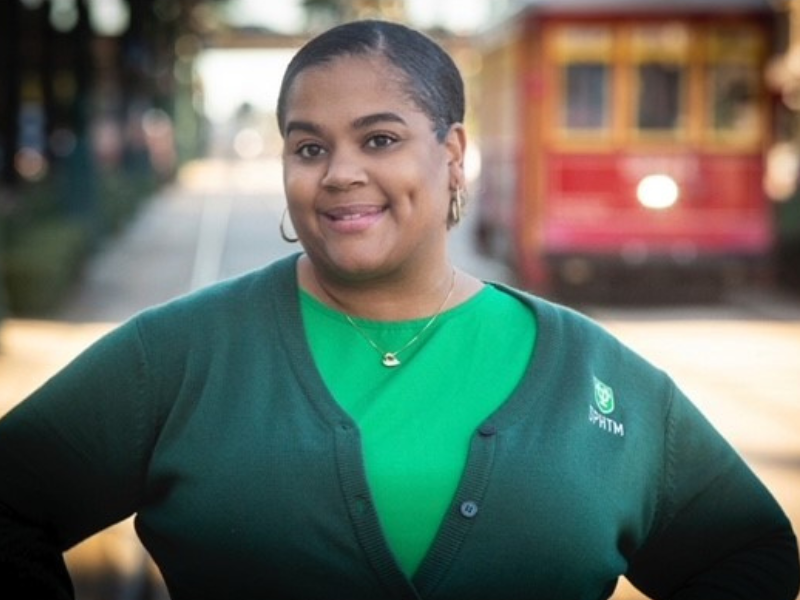LeShawn Simplis-Barnes putting her dedication to health equity to good use
LeShawn Simplis-Barnes is a fierce advocate for more people of color joining the public health workforce.
As director of admissions at the Tulane University Celia Scott Weatherhead School of Public Health and Tropical Medicine, she was recently reelected to her second term as a member of the Schools of Public Health Application Service (SOPHAS) Recruitment Advisory Council, a body where her voice could pave the way for more diverse students in the field.
SOPHAS is the centralized application service for public health degrees established by the Association of Schools and Programs of Public Health (ASPPH), a non-profit organization representing more than 150 institutions in the field. SOPHAS creates governance for the application process and recruitment initiatives through the actions of the Recruitment Advisory Council.
Advocating for representation is nothing new for Simplis-Barnes, who got into higher education because of her dedication to health equity.
She began her career in public health working in vector control and infectious diseases for the State of California in the Greater Los Angeles. The department is tasked with preventing the spread of disease by reducing population contact with vectors like mosquitoes, ticks, fleas, and bees. During Simplis-Barnes’ tenure, a lot of their work was focused on addressing West Nile Virus, which had hit the community aggressively.
Staff were charged with disseminating information to communities about how to prevent spread of the disease. It quickly became clear that they weren’t reaching certain communities, due to language and cultural differences.
The disconnect really hit home when she attended a conference in New Orleans and noted the Black members of the community weren’t necessarily being served, with little in the way of accompanying health care workers of color present to reach them. She felt that gap needed to be addressed, and that she could help address it.
Partly as a result of that experience, she transitioned toward a career in higher education as a way to impact the health workforce.
“I came into working in higher ed because I wanted to see more diversity. It's something important to me,” Simplis-Barnes says.
“The bigger picture in managing and addressing health disparities comes down to potential patients wanting to go and talk to people that look like them. Communities want to be served by people that know their plight, that will understand where they're coming from.”
Following a role as program manager of a TRIO STEM program at Compton College, she landed at Tulane, where she has spearheaded admissions since 2021. Her current role continues to be fulfilling, not least because of the impact she can make. Her voice is especially important following the Supreme Court’s ruling against affirmative action in 2023.
“Having less diversity because of this SCOTUS decision is really going to impact health disparities in the long run, but we’ve been working on how we can still create initiatives for diverse students to apply and attend,” Simplis-Barnes said. “We can’t ask about race anymore. But we can ask things like, ‘Have you ever experienced food insecurity as a child?’ Or if they've ever been judged or there was prejudice against them, or inequalities that they have faced. So, giving that space for them to tell their story.”
Simplis-Barnes noted that drilling deeper with students in this way could actually prove to be beneficial. Schools are concerned with making sure their students can be successful, and a more personal approach in the admissions process can only help the students feel more engaged.
“Everyone's story matters, and at the end of the day, it'll be their driving force of why they want to do well in graduate school.”
“I just had a meeting with our partnership program at Dillard (a historically Black university in New Orleans), and in times past I’ve heard from their students, asking questions like, ‘Is there a place for me at Tulane? Because you know, that's a school where a lot of white kids go.’”
“I'm just trying to combat that [sentiment], knowing that there's a place for them and telling them there is. I feel fulfilled in that sense. I feel really great about being able to do that.”

